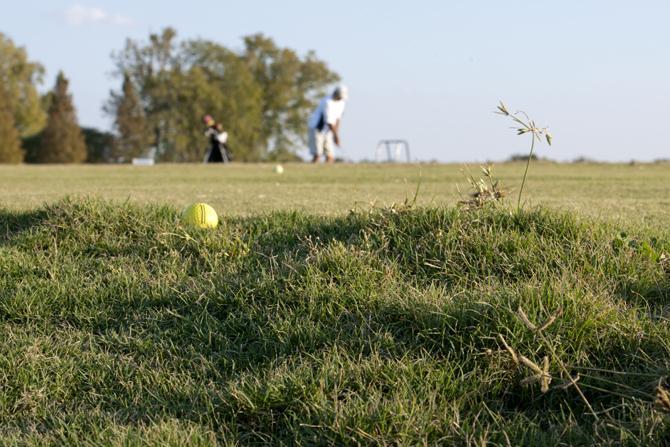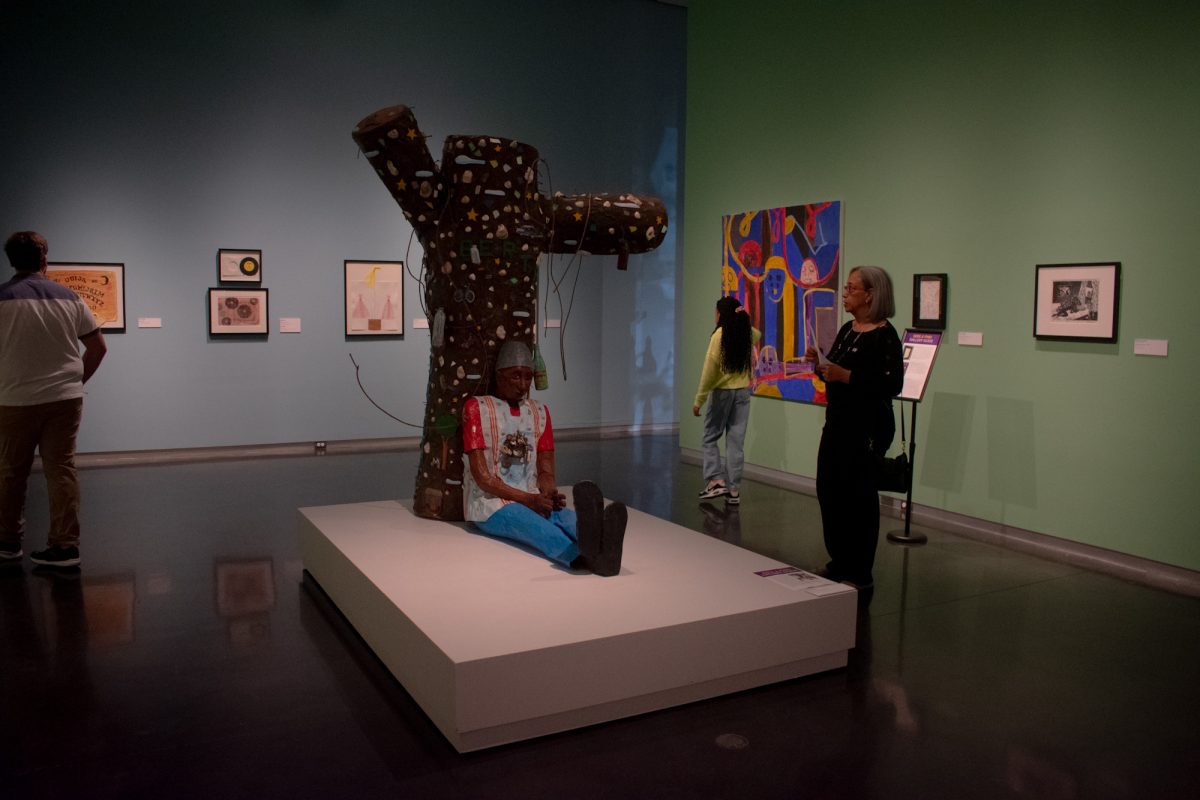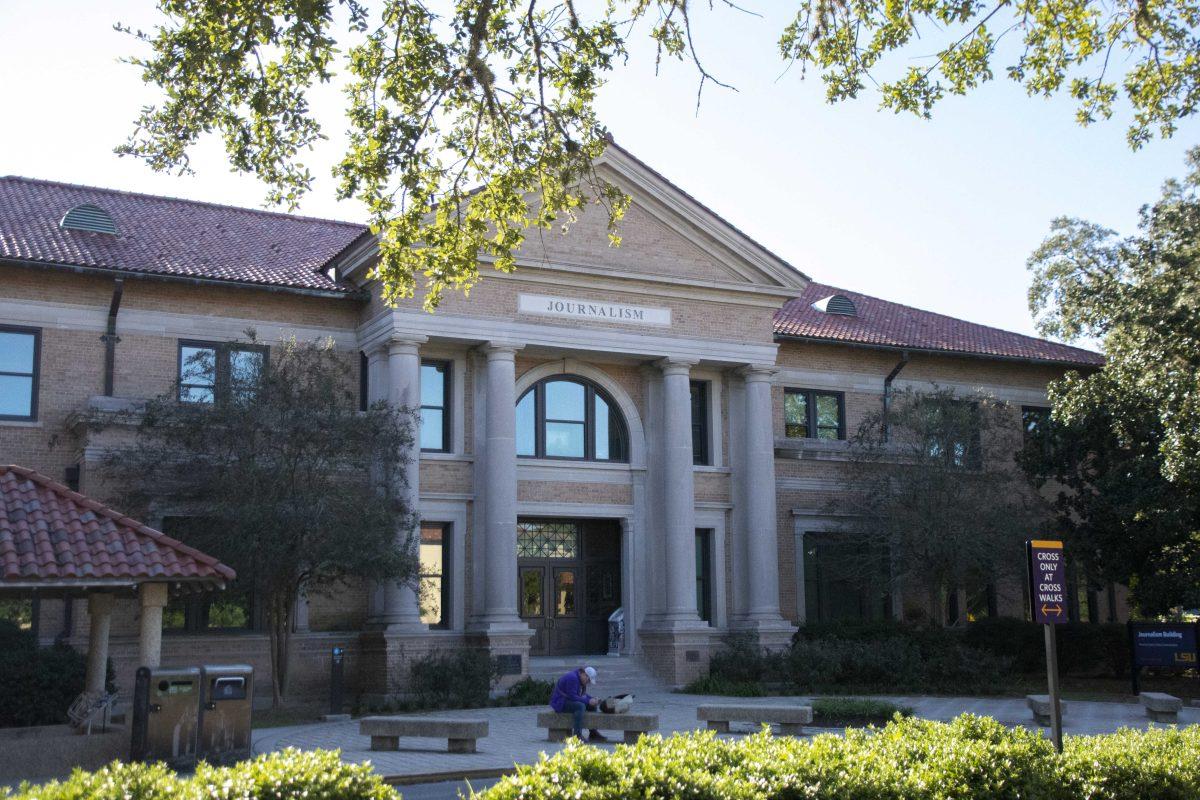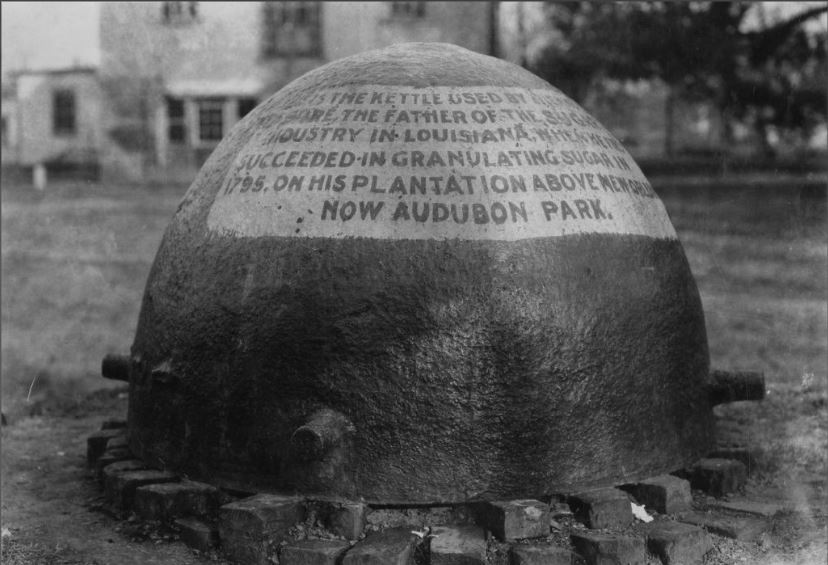About a month ago, Alex Box Stadium received a new outfield.
It’s durable, sturdy and aggressive — much like the admirable qualities found in the football team’s star-studded defensive line and exactly like the hallowed lawn it tramples on during home football games.
Celebration Bermuda, also known by its conveniently peppy shortened nickname ‘Celebration,’ now blankets the earth atop almost every athletic field on the University grounds.
“I honestly believe Celebration in this region of the country is going to take over,” said Assistant Director of Athletic Facilities and Grounds Eric Fasbender. “And anybody who doesn’t have it is making their job a lot harder.”
The hardy grass has its roots in Louisiana, unlike the grass previously grown at most of the University’s athletic facilities and still used at the football practice fields, called Mississippi Choice. Although developed at Mississippi State University, it is grown in one of the nation’s driest cities — Phoenix, Ariz.
LSU Athletics experimented with Celebration in 2007 with the soccer fields. Since then, Tiger Park, Tiger Stadium, Alex Box Stadium’s infield, the LSU Golf Course’s driving range and now Alex Box’s outfield, have all been outfitted with what Fasbender calls the Southern region’s most advanced breed of athletic field grass.
After seeing how quickly it recovered from weekly 90-minute cleated beatdowns in 2007, grounds crews and administrators decided they should install the tenacious Bermuda breed everywhere else as soon as the opportunity arose.
For Alex Box, a perfect storm of good fortune landed the fresh sod into the outfield by late September, despite a weeklong setback from Hurricane Isaac during the project’s initial launch.
And it’d be hard to find someone more appreciative than head baseball coach Paul Mainieri, who played a major role in advocating the switch to the new grass.
“A well-manicured baseball field, to me, is a beautiful piece of art,” Mainieri said.
Even though the installation delayed the start of fall practice by about four weeks, he said it will be worth it in the long run.
“From a player’s standpoint, the way a ball bounces is so important and impacts the outcome of the game,” he added, which is exactly why Fasbender turns to the team’s senior leaders for feedback on the field’s playability.
“We would talk to Mason [Katz] in the outfield, and Raph [Rhymes] actually gave pretty good feedback as well,” Fasbender said, noting that he would specifically turn to last year’s seniors Austin Nola and Tyler Hanover every day.
Fasbender, a Chicago native, then reflected upon a quote by Roger Bossard, the legendary longtime groundskeeper for the Chicago White Sox, who believed a grounds team, good or bad, could either win or lose a team about one-eighth of its home games each season.
“With the expectation here at LSU, it’s excellence at all times, either championship or bust — with that type of mentality, you always want to be on that good side,” he said.
Until a better breed comes along, LSU shouldn’t have to replace Alex Box’s sod for several seasons, unlike the grass at the football field.
Tiger Stadium received its first batch of Celebration following Bayou Country Superfest in 2010, since one of the mega-concert’s side effects includes killing Tiger Stadium’s turf below the layer of plastic sheeting on which enormous steel stages host the summer country jam session.
About $115,000 of the funding LSU receives for hosting the Bayou Country Superfest feeds directly back into the roots of Tiger Stadium each year in order to nurse a new crop of Celebration back to health in time for the fall season, Fasbender said.
Ever since the switch, the recovery time has been nearly cut in half.
With Celebration, a brick-sized divot from Saturday’s game vanishes by Thursday, whereas Mississippi Choice used to take seven to 10 days to fully heal, Fasbender said.
The only two fields left without Celebration are the aforementioned practice fields and the inner field at Bernie Moore Track Stadium, where it would come in handy during events like the javelin, discus and especially the hammer throw.
“They’re like little miniature bomb craters,” Fasbender joked, referring to the divots left by the 16-pound hammer.
He takes it personally when something bad happens to the fields, going as far as likening the grass to people.
“It works hard, and it deserves some time off. Just like us, it needs to have food, water, rest — it needs vacations as well,” he said. “You’ve gotta be kind, it needs love and attention just like we do.”










